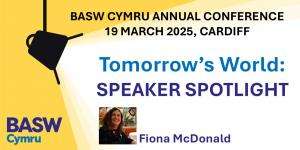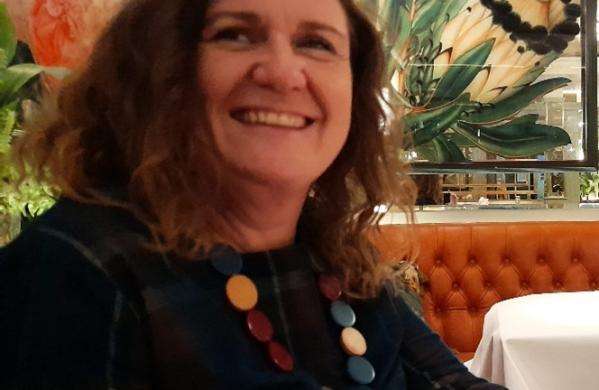We can't wait to welcome Fiona McDonald as one of our speakers at our Tomorrow’s World Annual Conference in Cardiff, 19 March 2025! Her session will look at:
Tomorrow’s World, Todays Strengths: Dyslexia in Social Work Practice
Fiona will share her experience and learnings from working as a Social Worker and Practice Educator who has dyslexia. This interactive session will highlight some of the unique strengths that come from having dyslexia that fit well with the social work profession. There will be a brief description of how to increase understanding of executive functions to aid well-being in the workplace. Additionally, Fiona will share some top tips on how to support social work students and staff who are neurodivergent with the aim of making teams more neuro- inclusive for the future.
About Fiona
Fiona received a late diagnosis of dyslexia when she studied for a Master’s in Social Work in 2005 in Cardiff. Her chosen Masters topic: ‘Autism and Play Interventions; The Experience of Parents and Carers’ was awarded a Distinction.
After qualifying Fiona worked in fostering for 9 years. During this time, Fiona noted the prevalence of indicators of neurodivergence among foster carers and the children they looked after. Her belief was that the strengths and traits of thinking differently attracted foster carers to this profession. In 2012 she devised dyslexia training and an awareness-raising campaign on neurodiversity for foster carers and professionals to help increase understanding.
More recently, as a Practice Educator for the last ten years, Fiona has supported and assessed social work students who are neurodivergent and provided independent supervision. She was also awarded Specialist Mentor of the Year 2019 by Beacon Support for work she did with students with additional needs.
Fiona continues to work as a Practice Educator and delivers training and coaching on supporting neurodivergent social work students and staff. She is passionate about helping social workers with their well-being. This has led her to undertake an Executive Functions Coach qualification to better understand how the brain works and help others to bring about the changes they want. Fiona believes that having a better understanding of neurodiversity and executive functions will help benefit everyone in the workforce and the individuals and families they work with.

